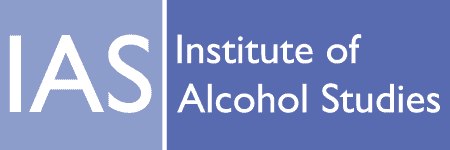Understanding barriers to the use of alcohol-free and low-alcohol drinks to reduce alcohol consumption among individuals from lower socioeconomic backgrounds
This project aims to shed light on why no/no drinks may not be as accessible or appealing to those from disadvantaged communities.
Introduction
Alcohol-related harm disproportionately impacts individuals from lower socioeconomic status (SES) backgrounds, including those from minority ethnic groups, despite comparable or even lower levels of alcohol consumption compared to higher SES groups.
This disparity highlights a pressing public health concern, as individuals from lower SES backgrounds are more vulnerable to the detrimental effects of alcohol. Recognising this, the UK government has promoted the substitution of alcoholic drinks with alcohol-free or low-alcohol (no/lo) drinks as a potential harm reduction strategy.
However, the effectiveness of this strategy in reducing health inequalities remains uncertain. Current evidence suggests that no/lo drink consumption is more prevalent among higher SES groups. This raises concerns that the increased adoption of no/lo drinks may inadvertently widen existing health disparities rather than mitigate them.
Research objectives
This project aims to address this critical gap in knowledge by investigating the barriers to no/lo drink consumption among individuals from lower SES groups. Specifically, it will:
- Delve into how these individuals perceive the role of no/lo drinks in reducing or quitting alcohol consumption.
- Identify the perceived and actual obstacles they face in incorporating no/lo drinks into their attempts to moderate or cease drinking.
- Explore potential strategies to overcome these barriers and increase the substitution of alcoholic drinks with no/lo alternatives.
- Examine how the availability of no/lo drinks in retail settings (off-trade) varies between deprived and affluent communities.
Research methods
The project will consist of two distinct studies:
Phase 1: Interviews
- In-depth semi-structured interviews will be conducted with 15 adults from lower SES backgrounds who drink at risky levels.
- These interviews will explore participants' perceptions of no/lo drinks, their motivations (or lack thereof) for consuming them, and the specific barriers they encounter in incorporating no/lo drinks into their drinking patterns.
- Thematic analysis will be used to analyse the interview data, identifying key themes and patterns related to individual perceptions, attitudes, and experiences.
Phase 2: Retail audit
- A discrete retail audit will be conducted to assess the availability of no/lo drinks in off-trade premises (supermarkets, convenience stores) in both deprived and affluent areas of Sheffield.
- This audit will systematically collect data on the range, price, and marketing of no/lo drinks across different retail environments.
- Descriptive and statistical analyses will be employed to compare the availability, price, and marketing of no/lo drinks across different areas, identifying potential disparities in access based on socioeconomic factors.
Project aims
By addressing the unique challenges faced by lower SES groups, this research aims to inform the development of targeted interventions that can effectively promote the adoption of no/lo drinks as a viable harm reduction strategy for all members of society.
The project runs in parallel to the NIHR-funded project 'Evaluating and responding to the public health impact of no and low alcohol drinks: A multi-method study of a complex intervention in a complex system' (also known as the No/Lo Project). Over the course of four years the project is examining whether making non-alcoholic or low-alcohol drinks more available and popular in the UK can improve people's health.
Key project information
This study is funded by the Institute of Alcohol Studies Small Grants Scheme which supports early career researchers and prioritises projects that can inform public policy debates on alcohol harm.
Dates
January 2025 – January 2026
Funding
£9,978
Principle investigator
Dr Merve Mollaahmetoglu
Research team
Dr Merve Mollaahmetoglu, University of Sheffield
Dr Melissa Oldham, University College London
Dr Inge Kersbergen, University of Sheffield
Professor John Holmes, University of Sheffield
Key contact
Get involved
We're looking for people in Sheffield who regularly drink alcohol to take part in our research.
- Do you drink alcohol most weeks?
- Are you finding it hard to manage financially?
- Do you drink alcohol-free or low-alcohol drinks infrequently?
If so we'd love to hear from you!
You'd take part in a 45-60 minute interview with a friendly researcher (online or in-person) and as thank you for your time you'd receive a £20 Love2Shop voucher.
Read our Participant Information Sheet for full details.
You might also be interested in…
-
SARG researcher Dr Parvati Perman-Howe secures NIHR Career Development Award
We are delighted to announce that Dr Parvati Perman-Howe, a Research Associate within the Sheffield Addictions Research Group (SARG), has secured a highly sought-after Career Development Award.
-
SARG to present latest research on alcohol-free and low-alcohol drinks at SSA Annual Conference 2025
Researchers from the Sheffield Addictions Research Group (SARG) are set to present their latest findings on alcohol-free and low-alcohol drinks at the Society for the Study of Addiction (SSA) Annual Conference 2025.
-
New report reveals further growth and key trends in alcohol-free and low-alcohol drinks market
A second Monitoring Report from the Sheffield Addictions Research Group has been published, revealing further growth in the alcohol-free and low-alcohol (no/lo) drinks market and offering new insights into consumer behaviour and pricing.

